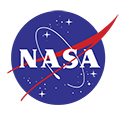NASA Interdisciplinary Research Call
*Excerpts cross-posted from NASA*
NASA has released a solicitation for new and successor interdisciplinary research investigations within NASA’s Interdisciplinary Research in Earth Science (IDS) program. 'Proposed research investigations will meet the following criteria: a) offer a fundamental advance to our understanding of the Earth system; b) be based on remote sensing data, especially satellite observations, but including suborbital sensors as appropriate; c) go beyond correlation of data sets and seek to understand the underlying causality of change through determination of the specific physical, chemical, and/or biological processes involved; d) be truly interdisciplinary in scope by involving traditionally disparate disciplines of the Earth sciences; and e) address at least one of the specific themes listed this solicitation:
• Volcanoes in the Earth System;
• Interactions Between Sea Ice and the Atmosphere;
• Polar Ocean/Biology/Biogeochemical Coupling;
• The Life Cycle of Snow;
• Impacts of urbanization on local and regional hydrometeorology;
• Space Archaeology: Using the Past to Inform the Present and Future;
• Exploring the Microbial Biodiversity of the Atmosphere.
The results of these investigations will improve our capability for both prognostic predictions and retrospective simulations of the Earth system. They will also advance our understanding of the vulnerabilities in human and biogeophysical systems and their relationships to climate extremes, thresholds, and tipping points. Meeting these goals requires approaches that integrate the traditional disciplines of the Earth sciences, as well as innovative and complementary use of models and data....
...Since its inception more than a decade ago, NASA’s IDS program has advanced the goal of understanding the Earth system by promoting interdisciplinary research and exploiting the vast wealth of data from NASA satellite and airborne sensors. The program’s focus has generally aligned with the goals of the U.S. Global Change Research Program. Substantial contributions have also been made to Earth system model development, training the next generation of interdisciplinary scientists, and developing the necessary infrastructure to take full advantage of NASA satellite data. Substantial contributions have also been made to Earth system model development, training the next generation of interdisciplinary scientists, and developing the necessary infrastructure to take full advantage of NASA satellite data. The specific topics of the program have varied through time (see prior program elements and awards at nspires.nasaprs.com), and this program element represents the development of new elements and the continuation of others. In its most recent prior incarnation IDS (ROSES 2016) these topics were:
• Understanding the Global Sources and Sinks of Methane;
• Ecology at Land/Water Interfaces – Human and Environmental Interfaces;
• Understanding the Linkages Among Fluvial and Solid Earth Hazards;
• Life in a Moving Ocean;
• Partitioning of Carbon Between the Atmosphere and Biosphere.'




